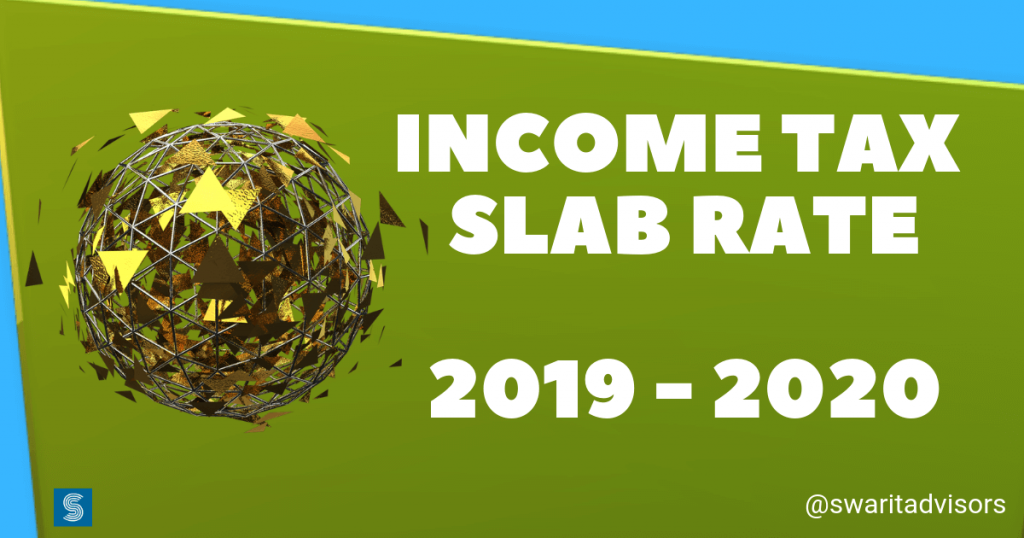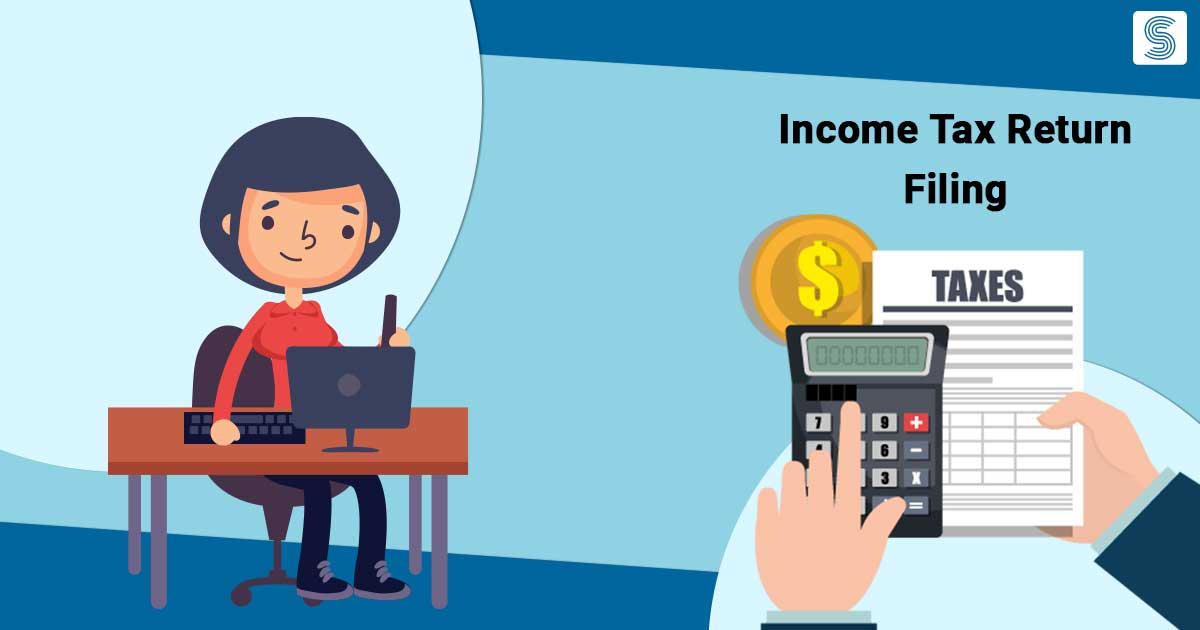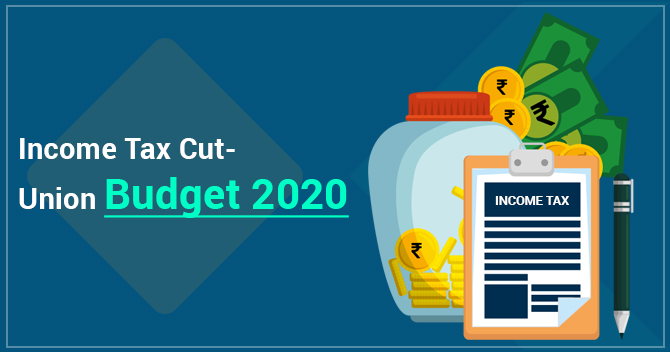Tax Slab Rate & Deductions Applicable For Individuals for FY 2019 – 2020

Swarit Advisors | Updated: Mar 15, 2019 | Category: Income Tax
The central authorities of all countries follow a certain tax structure that helps the government to collect revenue. Therefore, every country has a unique Tax Slab Rate. Moreover, people, from all walks of life, fall under the tax structure whether earning NIL or in lakhs or more than that.
If you are associated with a registered institute or have a business that offers more than a certain sum of money regularly, then you fall under the tax strategy. The declaration of the Interim Budget for the financial year 2019 – 2020 has been rather eventful for the entire nation. We will justify the same later in the blog. Before that, let’s understand the Indian Tax System.
Table of Contents
What one should know about the Indian Tax System?
Typically, the Indian Tax System has two sections, namely-
- The direct tax, and
- The indirect tax.
Both the central and state governments have the right to levy taxes on the general salaried people and business owners. Some of the taxes are kept under the control of the central government while others are included in the jurisdiction of the state. In some cases, the local authority will also charge a certain amount on the people.
But one of the most popular taxes among the citizens is Income Tax. Needless to say, during the official financial budget, all salaried individuals and business owners have their eyes and ears glued to the television screen. Everybody seeks some relief from the income tax payment.
This year too, the Finance Minister offered some good news for the common people. Before we delve into the tax slab rate and deductions, let us quickly check out the merits of tax payment.
Reasons why you must pay Income Tax
The central government and Income Tax department [1] has always stressed common people to pay taxes on time. After all, running a nation and offering much-needed facilities to the people is not an easy task. The major reasons why one must pay income tax are:
- The money, collected from the taxes, is used by the authority in offering better facilities and amenities to the people.
- From medical development to technological progress, everything comes to a standstill if there’s a scarcity of funds in the government coffers.
- By paying taxes, you contribute directly towards the overall development of the nation and fulfill your social responsibilities as well.
- The government also uses the money to establish industries and attract foreign investment.
- Paying taxes will also give you the opportunity to earn tax returns.
Furthermore, showing fraud income details is completely illegal. Therefore, the government has taken several steps to curb the growth and spread of black money in the nation. Thus, every legal resident, who falls under the tax structure, must pay their taxes in the prescribed time.
How much one has to pay as per the new tax slab rate?
There are various tax payment slabs in India. The figure depends on the annual income of the person and the age. Apart from this, they are also required to pay a surcharge. As per the new tax amendment rules, a salaried person will have to pay taxes as mentioned in the table below:
| Income particulars | Age of the individual (less than 60 years) | Age of the individual (more than 60 years) | Age of the individual (more than 80 years) | Education and Health Cess |
| Within Rs. 2.5 lakhs | No Tax | No Tax | No Tax | 4% of the tax amount |
| From Rs. 2.5 lakhs to Rs. 3 lakhs | 5% Tax only | No Tax | No Tax | 4% of the tax amount |
| From Rs. 3 lakhs to Rs. 5 lakhs | 5% Tax only | 5% Tax only | No Tax | 4% of the tax amount |
| From Rs. 5 lakhs to Rs. 10 lakhs | 20% Tax only | 20% Tax only | 20% Tax only | 4% of the tax amount |
| More than Rs. 10 lakhs | 30% Tax only | 30% Tax only | 30% Tax only | 4% of the tax amount |
How much surcharge one has to pay?
| Surcharge Rate | Income between Rs. 50 lacks to Rs. 1 crore | Income of more than Rs. 1 crore |
| For individuals | 10% | 15% |
Deductions Applicable Under the Indian Tax System
- Standard deduction – During the Budget 2019–2020 announcement, the Finance Minister said that the salaried people will be able to save more as the earlier standard deduction limit has been raised now. The limit, which was Rs. 40000 till date has now been increased to Rs. 50000.
- Increased TDS threshold – The earlier maximum TDS deduction amount was Rs. 10000. From the financial year 2019–2020, this limit has been increased to Rs. 40000.
- LTA (Leave Travel Allowance) deduction – LTA is an additional tax deduction facility received by most of the people getting a fixed salary from the government or private offices. This deduction will be offered for domestic travels. Only two such trips, organized in a span of four financial years will be counted as valid. The deduction will be done on the commutation only. Applicants must avail any form of public transport to get the benefit.
- Deductions under 80C, 80CCC and 80CC(D) 1 – Life insurance policy purchases, investment in PPF, EPF and pension programs, wards tuition fee, contribution in government policies and host of other things come under the Sections 80C, 80CCC and 80CC(D) 1. Applicants are entitled to attain a tax deduction that will be restricted within Rs. 1.5 lakh mark from these aspects.
- Deduction on medical insurance – Under Section 80D, applicants will attain the benefit of tax deduction on medical insurance policies. If they purchase such a health cover policy for the family or parents who fall in the senior citizen category, then they can attain tax deductions. Earlier, this was limited to Rs. 30000, but now the threshold has been increased to Rs. 50000 on a yearly basis.
- Higher education loan deduction – Education has become an expensive commodity. Many students opt for higher education and to pay the fee, they often resort to taking loans. If a person has taken such a loan for higher education and paying the interests, then he/she may acquire a deduction under Section 80E.
- Donation deduction – It has been mentioned in Section 80G that a citizen can donate any amount towards a noble cause. The tax department will gather information about these donations and the organizations, which received the money. Depending on these details, the authority will reward either 50% or 100% tax deduction.
- Additional deduction on a home loan – Under the special Section 80EE, the tax department allows all house owners to apply for an additional tax deduction. If they have acquired any home loan for the construction, and are paying the interest, then such applicants will attain a deduction that will not cross the mark of Rs. 50,000 annually. This perks will not be available if the total valuation of the property exceeds Rs 50, 00,000. Under Sections 80C and 24, any applicant will attain tax deduction of as much as Rs. 2 lakhs, if he is purchasing a home with credit from any bank. The perks will remain valid in case the applicant intends to move in the home. In case the property is used for rent, then the perk will be withheld by the authority.
Conclusion
There are many people who feel that they can go scot-free even if they do not pay the taxes. It is a major misconception. The central government and the tax departments keep records meticulously. Any attempts to put dust in the eyes of the tax department will be in vain. The defaulters will get official notice, urging them to clear all due taxes. In case they do not pay heed to these warnings, the central authority has the provision to take legal action against such offenders.
In case, you are feeling any trouble while filing the income tax return or have any query regarding the tax slab rate, then contact Swarit Advisors.
Also, Read:GST Reverse Charge – Know all the New Aspects under GST















